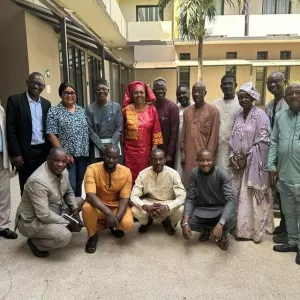Mali: reconnecting science and policy for climate-resilient agriculture
In Mali, the climate crisis is visible in the fields, markets, and public budgets. Decreasing yields, rising prices, and unpredictable seasons place family farms under constant strain. To respond to this triple environmental, economic, and social emergency, the Alliance Bioversity International & CIAT reactivated the Climate-Smart Agriculture Coordination Framework (CCASA) on February 26, 2025. Public institutions, universities, farmers’ organizations, the private sector, and

Mali: reconnecting science and policy for climate-resilient agriculture
In Mali, the climate crisis is visible in the fields, markets, and public budgets. Decreasing yields, rising prices, and unpredictable seasons place family farms under constant strain. To respond to this triple environmental, economic, and social emergency, the Alliance Bioversity International & CIAT reactivated the Climate-Smart Agriculture Coordination Framework (CCASA) on February 26, 2025. Public institutions, universities, farmers’ organizations, the private sector, and local authorities agreed to pool their data, resources, and expertise to transform agroclimatic information into operational, funded decisions, thereby enhancing food security and resilience.
Between 2019 and 2024, four major signals simultaneously challenged the fragile balance between climate, agriculture, and governance in Mali. First, weather patterns intensified: sudden floods in Mopti, heatwaves in Kayes, flash droughts in Kidal. Events that used to be years apart now occur within a single season. Second, production indicators declined. The Institute of Rural Economy recorded average losses of 17% for millet, 14% for sorghum, and 11% for cowpea; at the same time, the rainy season shortened by fifteen days. Third, cereal inflation surged: from 2021 to 2024, the price of a sack of millet rose by 28%, pressuring families’ dietary diversity. Lastly, the information system is fragmented. While the National Directorate of Agriculture collects crop data, the Environment and Sustainable Development Agency publishes erosion maps, and the Food Security Commission issues bulletins, no interface connects these pieces—leaving municipalities to plan in the dark.

